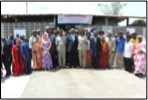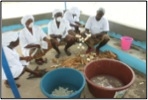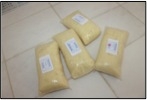Forms
3rd Prize - Abidjan
Many school dropouts and unemployed young people (men and women) constitute a considerable swathe of village populations in the District of Abidjan. In light of this situation, District Councillors and members of the Metropolis Women International Network’s Abidjan Antenna requested that the District Governor implement several projects to generate wealth and employment for women and young people in the District of Abidjan, a request that has been brought to fruition. The overarching goal of the initiative is to improve the living conditions of vulnerable groups (young people and women) in urban and peri-urban populations in 94 villages in the District through the implementation of various projects in the agropastoral sector, trade and the transformation of products and services. The objectives are two-fold: a) combating poverty and unemployment with a view to women and young people’s (re)integration into society and the labour force in the agricultural sector and other fields through the creation of stable jobs; b) combating food insecurity (quality and quantity) by making foodstuffs accessible. “The Modern Cassava Processing Unit” constitutes a pilot project that must be implemented across the length and breadth of the District. Moreover, other strands must be added to the initiative, such as the cassava peeling machine and the attiéké dehydrator. Should this project be brought to completion, it will enable populations to build health centres (maternity wards and clinics) and schools in the vicinity of villages that do not have any. To put it briefly, the initiative will enhance their living conditions. Furthermore, the creation of more than 100 jobs for young people and women who have dropped out of school will significantly reduce the level of poverty, social and food insecurity. This initiative therefore endeavours to build new men and women in the District of Abidjan, bringing women and young people together, empowering them to support themselves and to acquire training, as well as to educate others to emerge from poverty and destitution. As the first project of its kind in the region, it will undoubtedly afford a new perspective on women’s work. All in all, almost 500 women are involved in the project through the creation of direct and indirect employment. They can therefore support themselves, send their children to school and give them three meals a day. This project marks a starting point in the fight against food insecurity and idleness in villages, assisting people in villages’ vulnerable social groups.
Website: www.districtabidjan.ci








